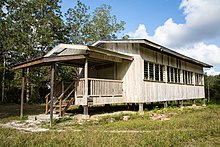| Protestant Church In Sabah | |
|---|---|
| Gereja Protestan Sabah Gorija di Potorontog sid Sabah (Rungus) | |
 Logo of the PCS | |
| Classification | Protestant |
| Orientation | Lutheran |
| Polity | Presbyterian [1] |
| Leader | Bishop Christopher Ogodong |
| Associations | Lutheran World Federation, Asia Lutheran Communion, Federation of Evangelical Lutheran Churches in Malaysia & Singapore, Council of Churches of Malaysia, Christian Federation of Malaysia, Christian Conference of Asia, World Council of Churches |
| Region | Malaysia |
| Origin | 1965 |
| Branched from | Basel Missionary Society |
| Congregations | 322 |
| Members | 42,000 members baptised [2] |
| Ministers | 56 |
| Primary schools | 3 |
| Official website | pcsmalaysia |

The Protestant Church in Sabah or PCS (Malay : Gereja Protestan Sabah; Rungus: Gorija di Potorontog sid Sabah) is one of the four Lutheran World Federation member churches in Malaysia. It currently has 322 congregations nationwide in 21 parishes [3] with a total of 32,000 baptised members, [4] making the PCS the second largest of the four [5] Lutheran bodies in the country. Its membership is primarily made up of the indigenous peoples of Sabah, with the largest majority being from the Rungus tribe of the native ethnic Kadazan-Dusun population. [3] The current president cum bishop of the Protestant Church in Sabah is Bishop Christopher Ogodong.